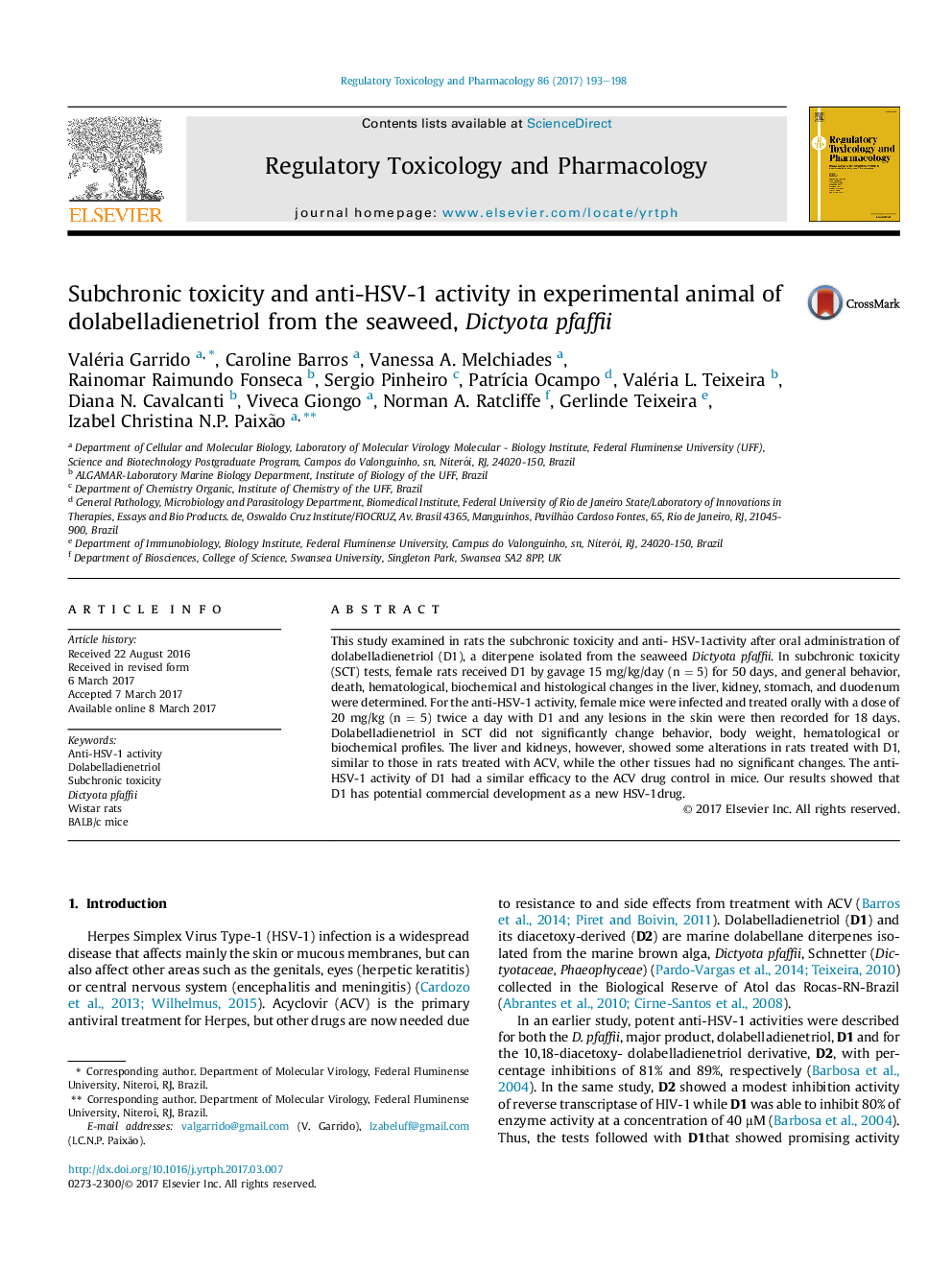| Article ID | Journal | Published Year | Pages | File Type |
|---|---|---|---|---|
| 5561263 | Regulatory Toxicology and Pharmacology | 2017 | 6 Pages |
Abstract
This study examined in rats the subchronic toxicity and anti- HSV-1activity after oral administration of dolabelladienetriol (D1), a diterpene isolated from the seaweed Dictyota pfaffii. In subchronic toxicity (SCT) tests, female rats received D1 by gavage 15 mg/kg/day (n = 5) for 50 days, and general behavior, death, hematological, biochemical and histological changes in the liver, kidney, stomach, and duodenum were determined. For the anti-HSV-1 activity, female mice were infected and treated orally with a dose of 20 mg/kg (n = 5) twice a day with D1 and any lesions in the skin were then recorded for 18 days. Dolabelladienetriol in SCT did not significantly change behavior, body weight, hematological or biochemical profiles. The liver and kidneys, however, showed some alterations in rats treated with D1, similar to those in rats treated with ACV, while the other tissues had no significant changes. The anti-HSV-1 activity of D1 had a similar efficacy to the ACV drug control in mice. Our results showed that D1 has potential commercial development as a new HSV-1drug.
Related Topics
Life Sciences
Environmental Science
Health, Toxicology and Mutagenesis
Authors
Valéria Garrido, Caroline Barros, Vanessa A. Melchiades, Rainomar Raimundo Fonseca, Sergio Pinheiro, PatrÃcia Ocampo, Valéria L. Teixeira, Diana N. Cavalcanti, Viveca Giongo, Norman A. Ratcliffe, Gerlinde Teixeira, Izabel Christina N.P. Paixão,
